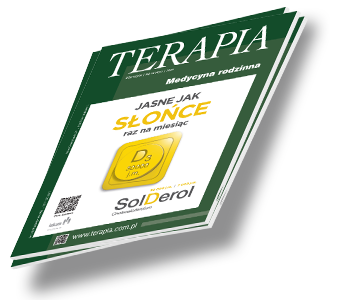Alergologia Terapia 2019, 4 ( 375 ) : 28 - 34
Benralizumab w terapii ciężkiej eozynofilowej astmy oskrzelowej – nowe doniesienia
Benralizumab in the management of severe eosinophilic asthma – new reports
Astma oskrzelowa jest przewlekłą zapalną chorobą dróg oddechowych. Paradygmat ten przekłada się na zalecenia dotyczące terapii astmy, które mówią, że w przewlekłych postaciach podstawą leczenia są przeciwzapalne leki kontrolujące przebieg choroby, w tym głównie glikokortykosteroidy wziewne (wGKS).

Zaloguj się i przeczytaj bezpłatnie całą treść artykułu.
Nie masz jeszcze konta dostępowego?
Zarejestruj się bezpłatnie, a otrzymasz:
* dostęp do wszystkich doniesień oraz pełnych tekstów artykułów naukowych w naszej Czytelni,
* prawo do bezpłatnego otrzymywania newslettera "Aktualności TERAPIA" z przeglądem interesujących i przydatnych wiadomości ze świata medycyny oraz systemu ochrony zdrowia w Polsce i na świecie,
* możliwość komentowania bieżących wydarzeń oraz udziału w ciekawych quizach i konkursach.
Zapraszamy serdecznie, dołącz do naszej społeczności.



Dodaj komentarz